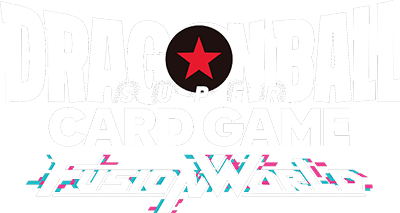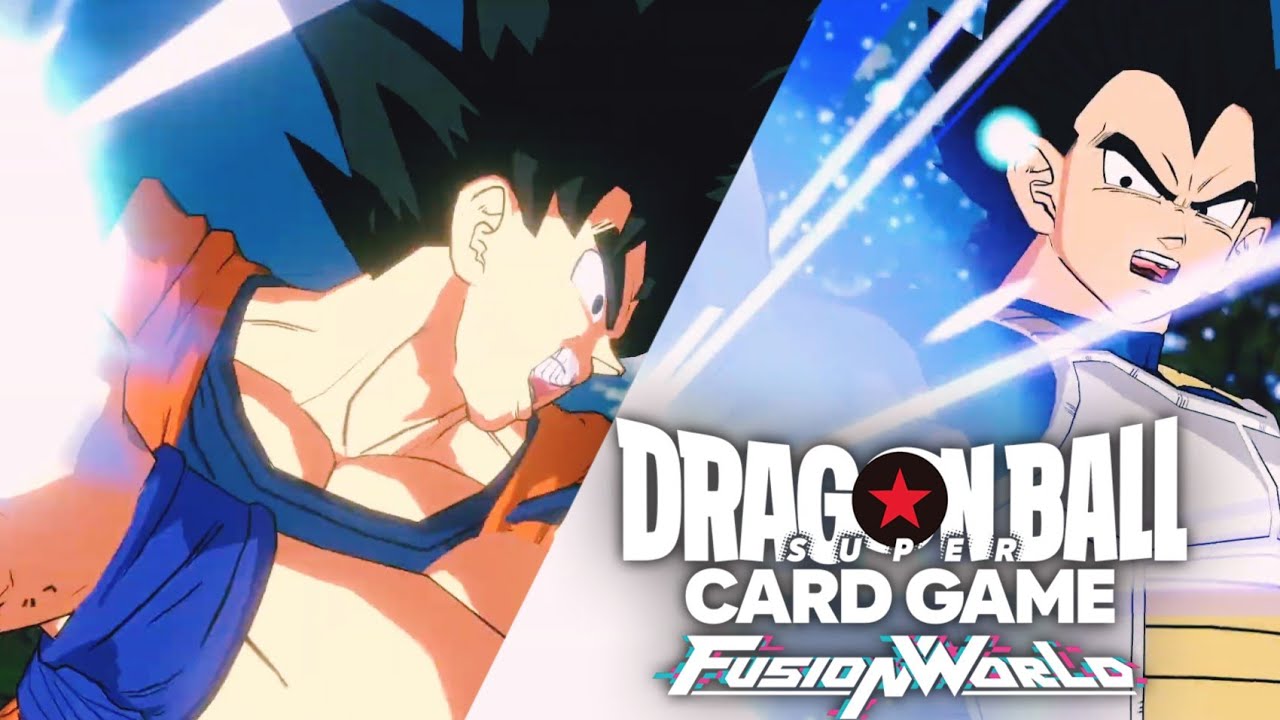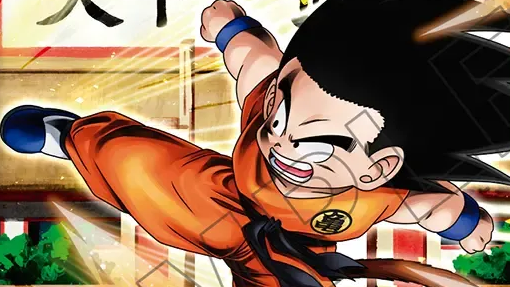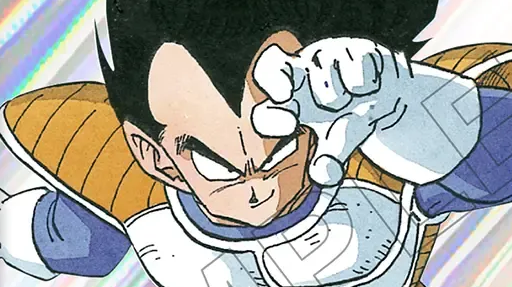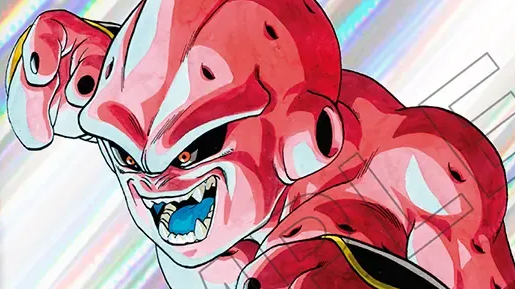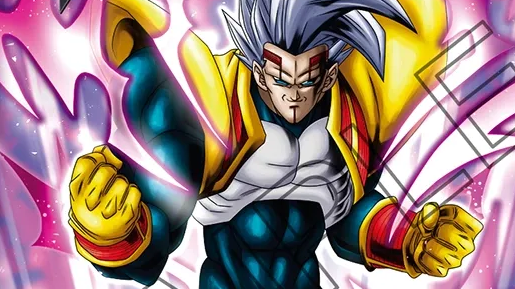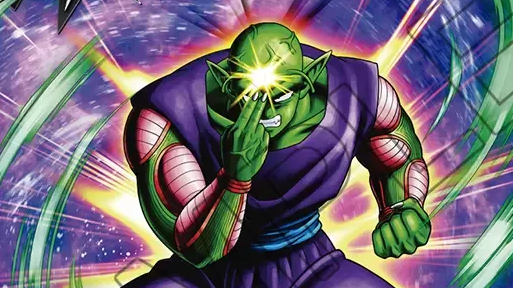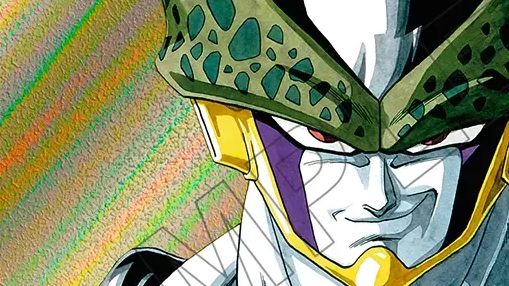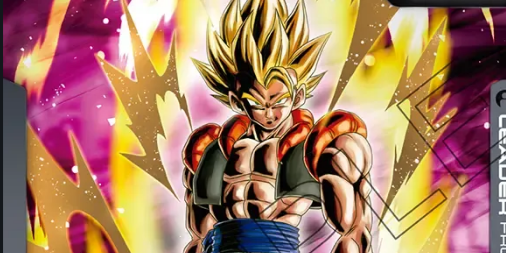Table of Contents
Card Games are a pretty niche genre in the video games industry, enough for the Dragon Ball franchise to drag in a lot of newcomers. Unfortunately, card games aren't really a beginner-friendly kind of games. They function a certain way, have rules one cannot ignore, and can be extremely frustrating if you don't know their intricacies.
In this article, I'll do my best to guide you through the basics of the new Dragon Ball Super Card Game Fusion World (currently in Open Beta). We'll go from covering how the game works, to the proper way of building a turn, or touch the important mechanics specific to this card game. Lastly, we'll also discuss how to use your gems in the store to get started during the Open Beta, so you quickly have a solid playable deck.
So, you have been in love with the Dragon Ball franchise for years, and this led you to test this new game, but you can't figure out its intricacies? You're in the right place.
Game Rules
Also, if you haven't yet, check the game's official introduction and rules page which is full of important information.
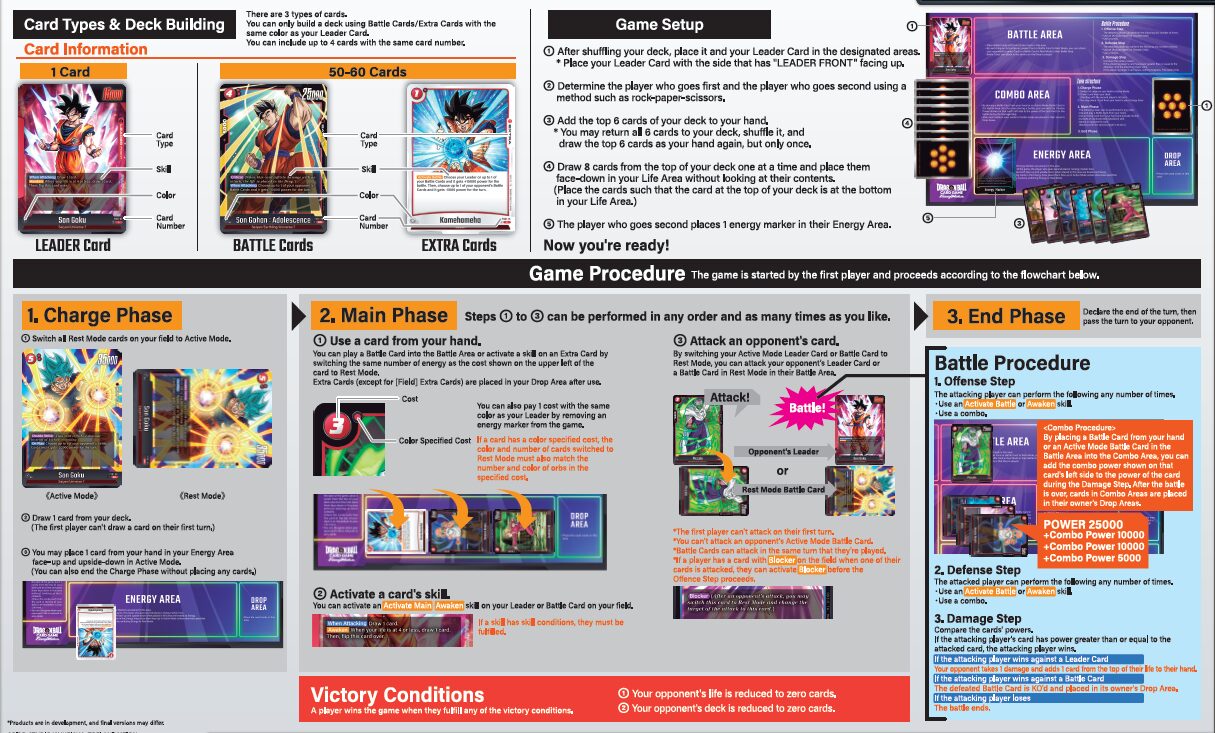
Your Goal in the Match
A match starts with each leader at eight health, and the goal being to get your opponent to zero before you get there. Then, we could sum up Dragon Ball Super Card Game Fusion World as a race where each player's finish line is the opposing leader being out of health. Here are a few rules to have in mind regarding that race:
- The game starts with each leader already in play, and each player draws six cards, which they can decide to keep or change once at the start of the match.
- A player can use two types of cards in their deck. Battle cards are characters you will send into battle, while Extra cards are spells and other support cards, mostly used to impact the characters on the field. Your Leader can be considered a Battle card, as it can attack or be attacked just like any other character on your side of the field.
- To use their cards, each player needs to pay some energy. You can add one card, any you like, to your energy Area per turn, in order to pay the cost of your other cards during the first phase of your turn. There is no limit to how cards can be used in a turn, as long as one can pay the energy cost for them.
- A card is available to use as soon as it is in play. Then, once you paid its cost, you can immediately attack with a character or trigger its ability if you wish to do so.
- After you have utilized a card, it will go into "rest" mode, meaning you cannot use it for the rest of the turn. Also, it makes it vulnerable to an opposing attack while it is in rest mode. The leader is always a valid target for an attack, you could consider it permanently in rest mode.
- In order to damage the opposing leader, or take out a character in rest mode, you need to attack it with more or equal power than it has.
- When you attack a target, you can boost the power of your card using the "combo" value of your other cards, typically 5,000 or 10,000 power, during your offense phase. The opponent will be allowed to do the same boosting of their card during their defense phase. Boosts will disappear after the battle has happened. If the same card is attacked twice during the same turn, it will have to be boosted again.
- When an attack succeeds on a battle card in rest mode, that card is KO'd and taken to the drop zone, which you can consider the game's graveyard. When an attack succeeds against the opposing leader, they lose one health point and draw the card which represented it.
- Leaders will get stronger once they reach 4 health, as they unlock their "awaken" form. They will get a new ability, and have a higher base power from this point on.
In that race, you have several ways to emerge victorious, as you don't have to see it as a sprint to the finish line. That is a possibility, represented by aggressive decks, which will aim at attacking the opposing leader most of the time, looking to pressure the opponent, and keep the game short, as their late game potential is limited.
However, you could also build a deck based on controlling the field, and look to take out any character your opponent gets in play, while you protect your leader from their attacks. In the end, your goal is to get to the finish line before your opponent, whether you do it because you are very fast, or make them very slow, is up to you.
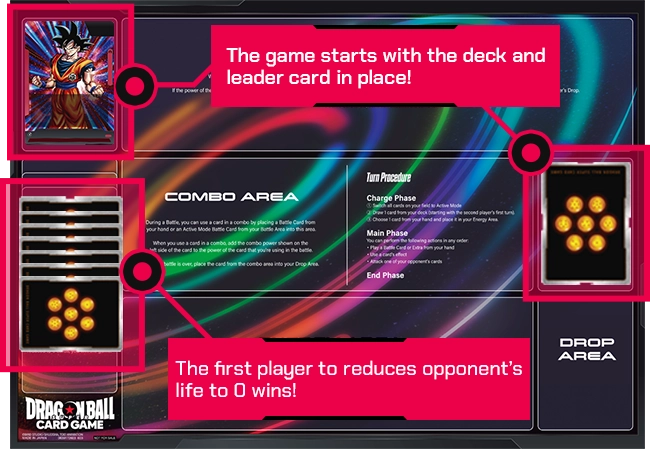
Phases in a Turn
There are three main phases to a turn in Dragon Ball Super Card Game Fusion World: Charge, Main, and Offense.
- The Charge Phase happens at the start of each turn, you are allowed to place one card in your Energy area. You can place any card there, and it immediately represents one extra energy available. You can decide to not place any card, but cannot place two during the same Charge Phase. Looking at the current impactful cards in the game, it seems like aiming for at least five energy is the minimum for most decks. Above that number, each strategy is different based on the cards they wish to play.
- The Main Phase is your turn, which you can organize as you wish. You can attack, play a card, trigger an ability in any order you like. For example, if your leader draws you a card upon attacking, you could start your turn with a leader attack, so you would see what that extra card is to decide what to play next. On the other end, you are also free to use all your energy immediately and then proceed to attacking your opponent's cards.
- The Battle, or Offense Phase starts whenever you declare an attack against an opposing character or leader. Then, the game will ask you about specific "When Attacking" abilities and if you want to power up your card before locking in your attack.
During your opponent's turn, you will get a Defense phase, which starts once the Offense one is completed, where you can power up your card if you want to save it from the attack.
One of the key points in this game when it comes to building a turn is to abuse the flexibility you have to attack at any point during your Main phase. This means you can attack with a card already in play, and then spend energy depending on how your opponent reacted to your offense. You can sequence your attacks various ways, depending on if you want to lead with your big card, to push your opponent to spend cards on defense immediately, or start small, and maybe get them to use a card they would have needed for your bigger threat.
At first, it is completely fine to focus on the basics, and just follow a basic pattern of dropping a card for energy, summoning new characters for battle, attacking your opponent. As you get more comfortable, feel free to throw a few twists in and there, just to see how your opponent reacts to them.
Building a Deck
The last thing you need to know in card game, is how to build a deck. Don't worry, we aren't going to go into all the intricacies of deck building and the little details of refining a deck over several days of testing. Instead, let's just discuss the key points, which are good to know even if you end up copying a deck online:
- A deck shall have 51 to 61 cards in Dragon Ball Fusion World, made of your Leader and 50 to 60 Battle and Extra cards. For consistency purposes, I recommend always running 51 unless you have a specific reason to do otherwise. It will improve your odds of finding the cards at the core of your strategy.
- Your Leader will determine the color of your deck, and the cards you should include in it. Down the line, I wouldn't be surprised to see multicolored decks emerging. For now, let's just stick to playing cards sharing the same color as our Leader.
- You can play up to four copies of the same card in your deck. Here is an easy-to-understand rule to know how many copies of a card you might want in your deck:
- 4 copies = Want to find it every game, important to your deck's strategy, or easy to recycle for another one.
- 3 copies = Want to find it in most games, solid card in your deck's strategy.
- 2 copies = Good utility card, or specific help for a popular opponent.
- 1 copy = Situational card or specific help for a popular opponent.
- Consider the fact a card can have multiple uses. It can be played for its cost, placed in the energy area, or used as a power up to combo with another card in battle. Then, you could include very situational, or expensive cards in your deck, even in multiple copies, as they can be disposed of easily if their effect isn't useful at the time.
- When in doubt in between two battle cards, the Combo power is a good tiebreaker. Indeed, a 10,000 power bonus will always be a better support compared to a 5,000 one.
- Spells are cheap, but cannot be used as Combo to buff other cards for free. Then, you should always have more battle cards than spells in your deck, as these are more flexible to use. Plus, Battle cards have abilities, which can often replace spells while providing a character to use in battle.
- You will draw quite a lot during a match, then, finding a card you included in three or four copies should be quite routine.
Just like the gameplay, feel free to test various things.
Awakening Your Leader
One of the biggest mechanics in this new Dragon Ball game is the ability to awaken your leader, exactly the same as Goku transforming into its Super Saiyan form.
When your leader reaches four health, you will unlock the ability to "flip" it, meaning turn the card to its other side. Typically, this means a stronger card, with both more power and an improved, or different ability compared to its base form.
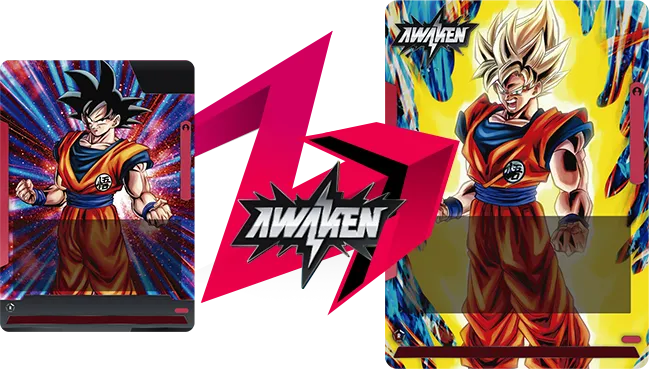
While you might think this awakening is a synonym of being in trouble, as you already lost half your available life points, you should quickly realize it actually is a win condition for most decks. Indeed, not only did you get four cards for the four hits you took to awaken, you now have a stronger leader and an ability worth building your entire strategy around. Then, you might actually be fine if your opponent attacks your leader early in the match, and you will find yourself playing cards with the ability to damage your own leader as well.
If we take this FB01-001-son-goku for example, awakening your leader provides a boost of 5,000 power to all your cards with "Universe 7" in their traits during your turn, powering up your offensive power a ton. As such, a lot of decks in Dragon Ball World Fusion aim at awakening their leader quickly, and then pressuring the opponent with the unlocked potential. The important part of that plan is being able to protect your leader from this point on.
Drawing Cards
As we just explained, awakening your leader is very powerful, and typically propels the game into the real part of the race for the win. At that moment, both decks have reached they full power, and losing several life points in a turn is entirely possible, especially if you lack some combo cards, or defensive spells.
With that in mind, it is important to control our card usage, and income during the match, especially during the first part, while both players are still early in their development.
Then, you should focus on what is called "card advantage", meaning you are looking to build a bigger reserve of cards than our opponent. In order to do so, we can draw more cards than they do, hence why we are fine taking a few hits on our leader to awaken it, as we also get some cards in the process. We can also remove the cards they have in play, as this will be less to deal with later on, when we'll push for the win, or push the opponent to use combo cards early in the match to protect themselves from our attacks, which again, they won't have when we'll push for real later on.
The ultimate goal here is to control who is ahead when it comes to the ability to buff cards during the battle phase. Indeed, considering you can give a bonus 5,000 or 10,000 power for the cost of a card, but no energy, the more card a player has in hand, and the more potential bonuses they are holding. Then, if you manage to create a big card differential during the early stage of the match, you should be in a prime position to dominate the Battle phase when it really matters, once leaders are awakened, and both players are going for the kill.
With more cards, you will attack for higher totals, and have the ability to buff your leader or important battle cards when they are targeted by an attack as well.
Mastering this part of the game will elevate you from being a beginner to a good player in no time.
Spending Gems in the Store
Alright, we have covered the important topics when it comes to playing Dragon Ball Super Card Game Fusion World, so let's discuss how to quickly get enough cards for a playable deck. There is a simple way to do so: buying the same starter deck twice. Let me explain.
When you start the game, you will get a ticket for a starter deck of your choice amongst the basic four and a stack of gems to use in the store. While you could use these gems to purchase boosters, where you will get various cards, and some really cool ones you can't get in starter decks, the ideal deal is to use 400 gems on the same starter deck you already used your ticket on. Doing so, you will have four copies of all cards in that deck, and can build a solid deck immediately, as the best ones only come in two copies.
Here are two cards you might want four copies of in the Vegeta blue deck for example, but will only get twice in the starter deck.
This 5-cost Vegeta will be your finisher with its Double Strike ability. Considering it already has 15,000 power more than most awakened leaders, you can easily buff it out of range and hit like a truck to finish the match.
Gotenks is great to get cheap cards back, which we can use as combos to power up our cards in play. Together, Son Goten and Trunks: Youth represents a bonus of 15,000 to 20,000 power to any of our offense or defense, perfect to be sustainable in the most contested part of the match.
The risk with this strategy is to invest into a leader you don't enjoy playing with. Then I would encourage you check out some content, or read about each starter deck's strengths and weaknesses before committing most of your early days resources. During the beta, One could easily purchase four starter decks in the first two or three days, meaning you could get two leaders with solid decks almost immediately.
If the same mission and login rewards are offered when the game launches for real, I have no doubt this should be the best way to quickly be able to craft an enjoyable, kind of competitive deck until you find the rarer cards in a booster pack.
Closing Words
Dragon Ball Fusion World shares some game mechanics with One Piece TCG or even its ancestor, Dragon Ball Super Card Game. However, if you haven't played any of these two games, or possess an extensive card game background, I completely understand how the first few hours on the game can feel like a complicated riddle. I hope this little guide could help you get started with the game, and contribute to making the experience as fun as possible.
If you would need any help, feel free to drop your question below, and we'll do our best to help out. If you wanted more advanced tips about the game, we also have an article about those, and plenty more are being worked on as well.
Good Game Everyone.
